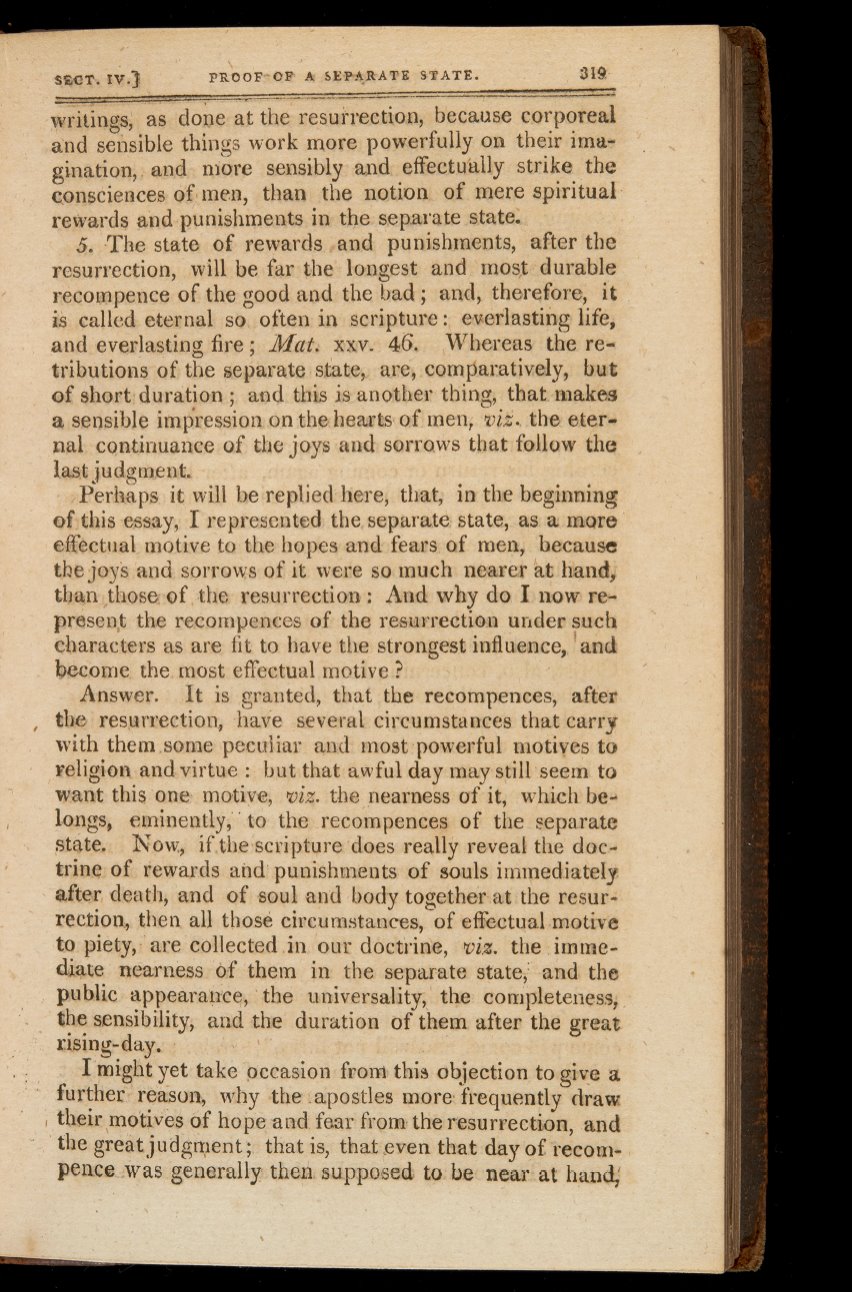

SECT.
Iv.)
PROOF
CF
A
SEPARATE STATE.
319
writings, as done
at
the resurrection, because
corporeal
and
sensible things
work more powerfully
on
their ima-
gination, and more
sensibly
and
effectually
strike the
consciences
of
men,
than the notion of
mere
spiritual
rewards
and
punishments
in
the
separate state.
5.
The state
of
rewards and punishments,
after the
resurrection,
will
be far the
longest and most
durable
recompence
of
the
good
and
the
bad
;
and, therefore,
it
is
called
eternal
so
often in
scripture:
everlasting
life,
and
everlasting
fire
;
Mat.
xxv.
46.
Whereas
the
re-
tributions of
the
separate
state, are, comparatively,
but
of
short duration
;
and
this
is
another
thing,
that
makes
a
sensible impression
on the
hearts
of
men, viz.
the
eter-
nal continuance
of
the
joys and
sorrows
that
follow
the
last judgment.
Perhaps
it
will
be
replied here, that,
in the
beginning
of
this
essay,
I
represented
the
separate
state,
as
a
more
effectual motive
to
the hopes
and
fears
of
men,
because
the joys and sorrows
of it
were
so
much
nearer
at
hand,
than those of the resurrection
:
And why
do
I
now
re-
present
the
recompences
of
the
resurrection under such
characters
as
are
fit to
have the
strongest
influence,
'and
become the
most effectual motive
?
Answer.
It
is
granted,
that
the recompences,
after
the resurrection,
have several
circumstances
that carry
with them
some
peculiar and
most powerful motives
to
religion and virtue
:
but that
awful day may still seem
to
want
this one motive,
viz.
the nearness
of
it,
which be-
longs,
eminently,
to the
recompences
of
the
separate
state.
Now,
if
the
scripture
does really reveal the
doc-
trine
of
rewards
and punishments
of
souls
immediately
after
death, and
of
soul
and
body
together
at
the
resur-
rection, then
all
those circumstances,
of
effectual motive
to
piety,
are
collected
in
our doctrine,
viz.
the imme-
diate nearness
of
them in the
separate
state,'
and the
public appearance, the
universality, the completeness,
the
sensibility,
and
the
duration of
them
after
the
great
rising-day.
I
might
yet take occasion
from
this objection to
give
a
further
reason,
why
the .apostles
more frequently
draw
their
motives
of
hope and fear
from
the
resurrection, and
the
great
judgment; that
is,
that
even
that
day
of
recom-
pence was generally then supposed
to be
near at
hand;

















